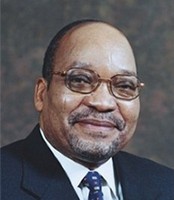Relations between South Africa and Nigeria have long resembled a rollercoaster without a safety bar. While Africa’s first- and third-largest economies, respectively, have for long stretches shared a close relationship, it is one marked by volatility and tension. And during the past three years, this critical bilateral relationship has begun to wobble dangerously, finding itself today in need of urgent détente.
Nigeria has long seen itself as a leader in Africa, having played a championing role in the anti-apartheid struggle, while South Africa sees itself an exemplar of both democracy and the conduct of international relations. After a history of tensions due to the apartheid regime in South Africa and the dictatorship in Nigeria, bilateral ties reached a zenith between 1999 and 2008, when the governments of Thabo Mbeki in South Africa and Olesugun Obasanjo in Nigeria articulated grand continental ambitions, including the twin goals of stabilizing and democratizing Africa. Both governments came to the realization that the continent’s marginalization and underdevelopment could only be reversed if countries like Nigeria and South Africa acted together in a kind of “Concert of Africa,” a latter-day version of the 19th-century European hegemonic alliance system.
During this period, Nigeria and South Africa were pivotal in engaging the outside world, especially the G-8, in search of a strategic partnership between the continent and the industrialized states. They openly attempted to play a bridging role between Africa and the Global North, with the two countries’ leaders considering this vital for the success of the newly re-formed African Union and its New Partnership for African Development. Increasingly, Nigeria and South Africa saw themselves as “problem solvers” in world affairs, particularly with regard to advancing African development, peace and security.

